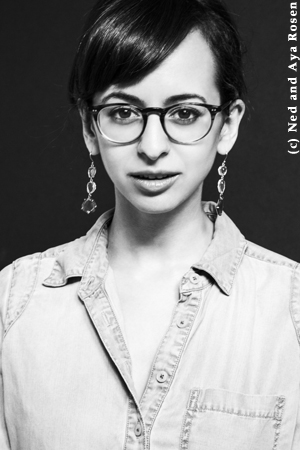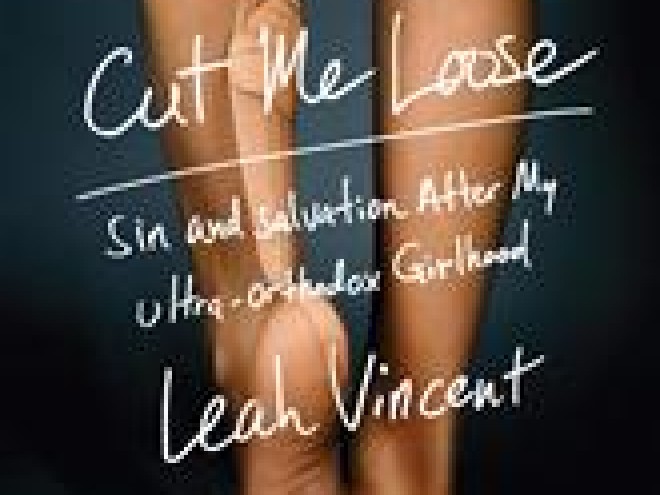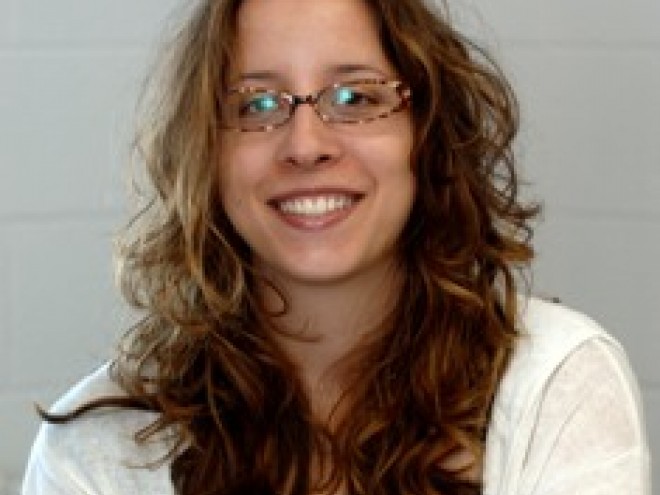Earlier this week, Leah Vincent wrote about leaving the ultra-Orthodox community and the backlash that came when she decided to talk about her decision publicly. Her memoir, Cut Me Loose: Sin and Salvation After My Ultra-Orthodox Girlhood, will be published by Nan A. Talese on January 21st. She has been blogging here all week for Jewish Book Council and MyJewishLearning.
 When I was little, I talked to God constantly. There were prayers for waking up, for the morning, for the afternoon, before eating, after eating, after using the bathroom, on hearing thunder, on seeing lightning, on a long trip, on wearing new clothing, on going to bed. These were the required Hebrew prayers, which I augmented with personal updates in silent English, checking in with God like a modern kid sends texts: a staccato barrage of shorthand messages bracketing every emotion and event.
When I was little, I talked to God constantly. There were prayers for waking up, for the morning, for the afternoon, before eating, after eating, after using the bathroom, on hearing thunder, on seeing lightning, on a long trip, on wearing new clothing, on going to bed. These were the required Hebrew prayers, which I augmented with personal updates in silent English, checking in with God like a modern kid sends texts: a staccato barrage of shorthand messages bracketing every emotion and event.
When I left ultra-Orthodoxy as a teenager, I brought God with me on my journey, a silent and watchful companion in those turbulent years. Even as I tried cheeseburgers and kissing boys, I could still drench the pages of my prayer book with tears. But eventually, about eight years ago, when I read enough science to squash the last of the mystical stories I had been raised on, my growing skepticism evolved into a firm comfort with Atheism and I stopped talking to God.
I went to yoga, the other day. My mind wandered down my to-do list as I planted my legs in the postures for Warrior One, Two and Three. After a sweaty hour, as we lowered to corpse pose to end the class, I glanced at the woman next to me. Her shorts had ridden up, revealing a series of scabby scars on her thigh. I lay back with my palms up, eyes closed and stinging with tears.
Maybe it was the yoga, unfolding the pieces of my body, unhinging the stuck places, opening my heart, but to my surprise, I found myself talking to God in my head. Screaming at him.
“Where were you? Where were you, God?”
My throat closed as I tried to swallow my sobs.
I knew the scars that the woman beside me carried. As a teenager, I had taken a razor to my arm. Releasing blood gave me relief from the terror and confusion I felt after leaving my religious family and finding myself alone in the world. My cutting has long healed to Braille, but the woman’s fresh wounds suddenly brought me back to that time in my life that now seems so long ago.
“Where were you God? Why didn’t you save me from myself, from everyone, from everything?”
The anger piled on top of my supine body, a mountain of rocky fury hovering over me. It felt real, three-dimensional, my forgotten emotions solidifying above me as I railed at God.
There was no answer. But suddenly, I saw myself, a little naked creature, emerging from a door in the anger, walking out, away from it, onto a vast lunar plain. My shoulders sank into the yoga mat, as I felt the relief of being free from all of that bitterness. It was so simple, in this strange little vision I had. I just walked away from the anger and was free.
“Roll up to sit,” the yoga teacher instructed us, and my vision faded. But a sense of lightness remained, along with a strange aftertaste from having struck up a conversation with someone who no longer existed.
There is no God for me, in my understanding of the world now, but perhaps, I mused, as I rolled up my mat, there is still some place for me to send my hopes and fears. I can’t deliver my words to a Divine listener, but maybe there is still relief in sending my messages out to a psychic space beyond myself, in giving myself permission to pray, even, as an atheist.
Leah Vincent is a writer and activist. The first person in her family to go to college, she went on to earn a master’s in public policy from the Harvard Kennedy School. In addition to writing for various publications, including The Huffington Post and The Jewish Daily Forward, she is an advocate for reform within ultra-Orthodoxy and for the empowerment of former ultra-Orthodox Jews seeking a self-determined life. She works with Footsteps, the only organization in the United States supporting formerly ultra-Orthodox individuals. Read more about her and her memoir, Cut Me Loose: Sin and Salvation After My Ultra-Orthodox Girlhood, here: www.leahvincent.com.



